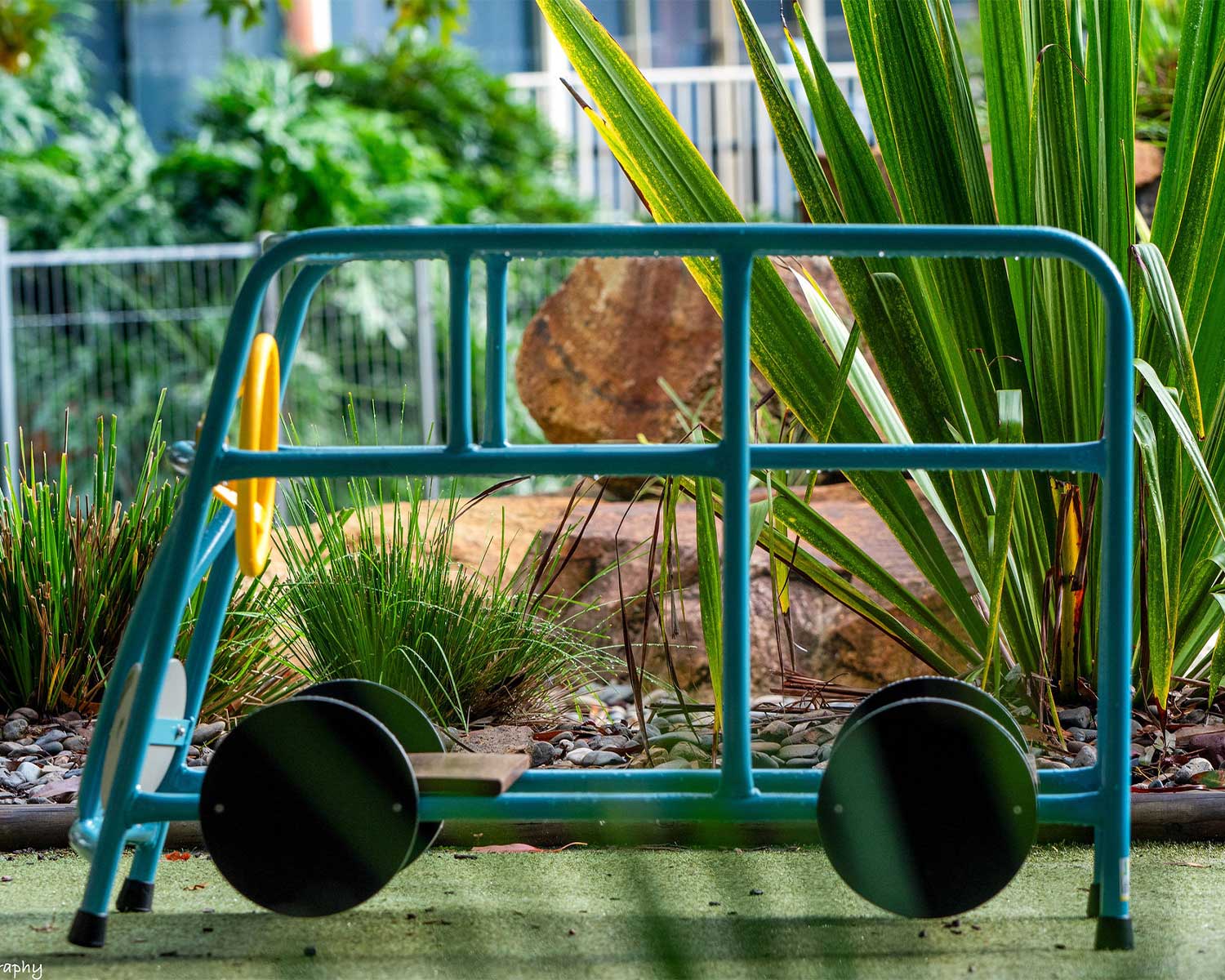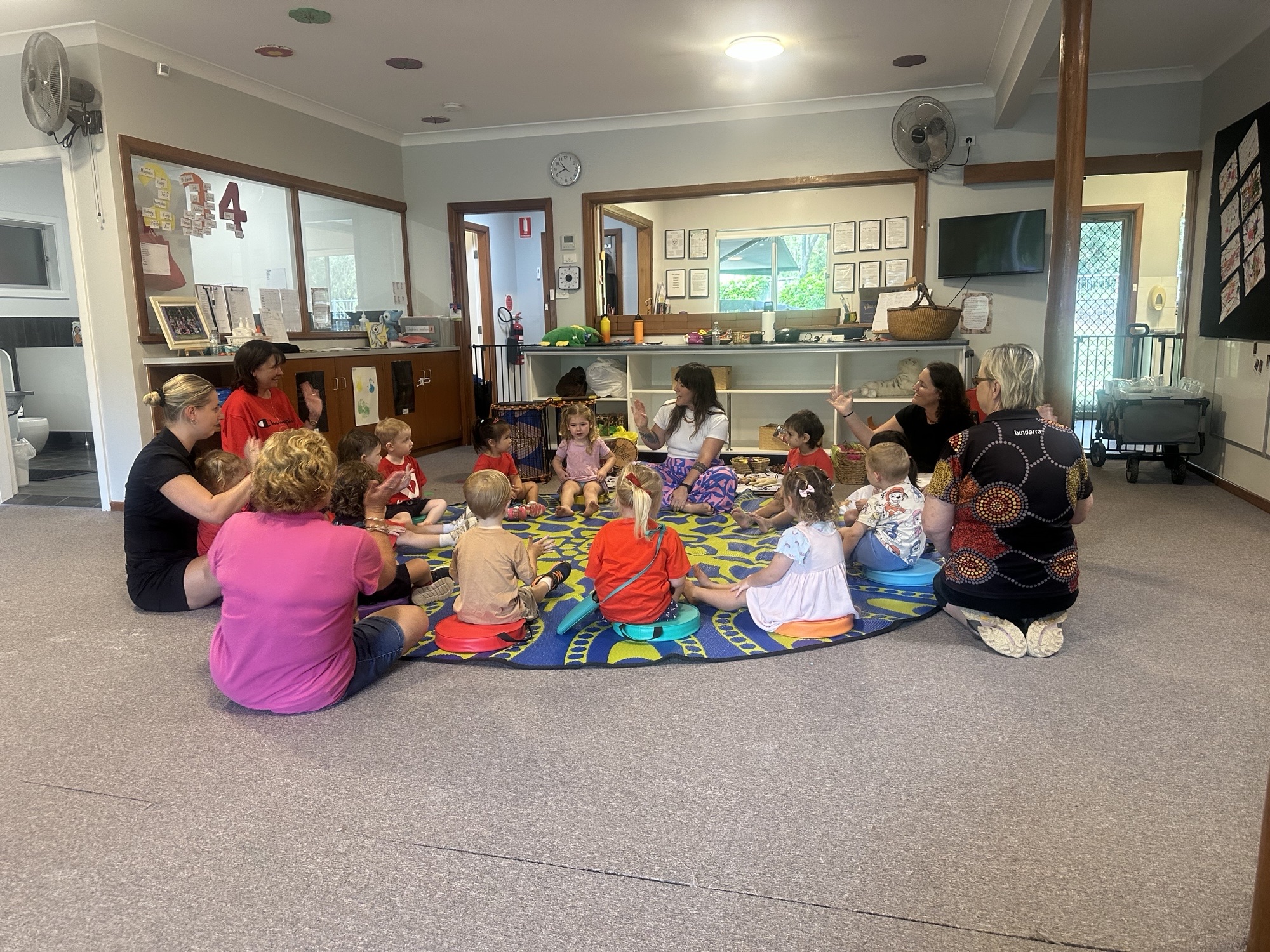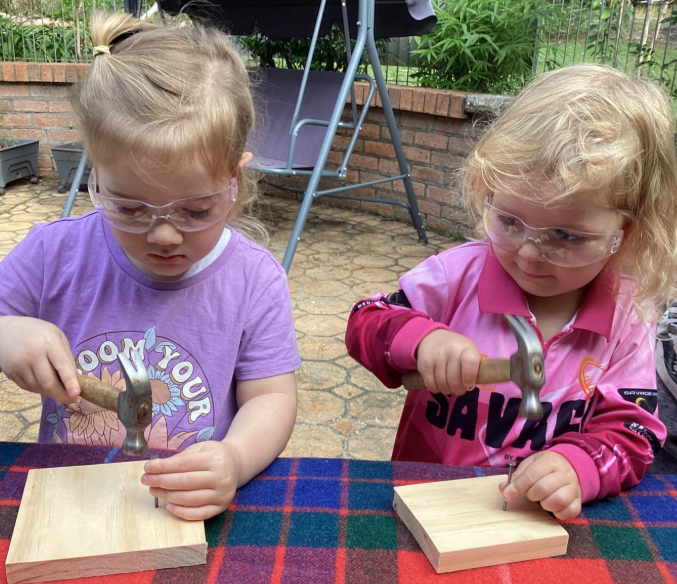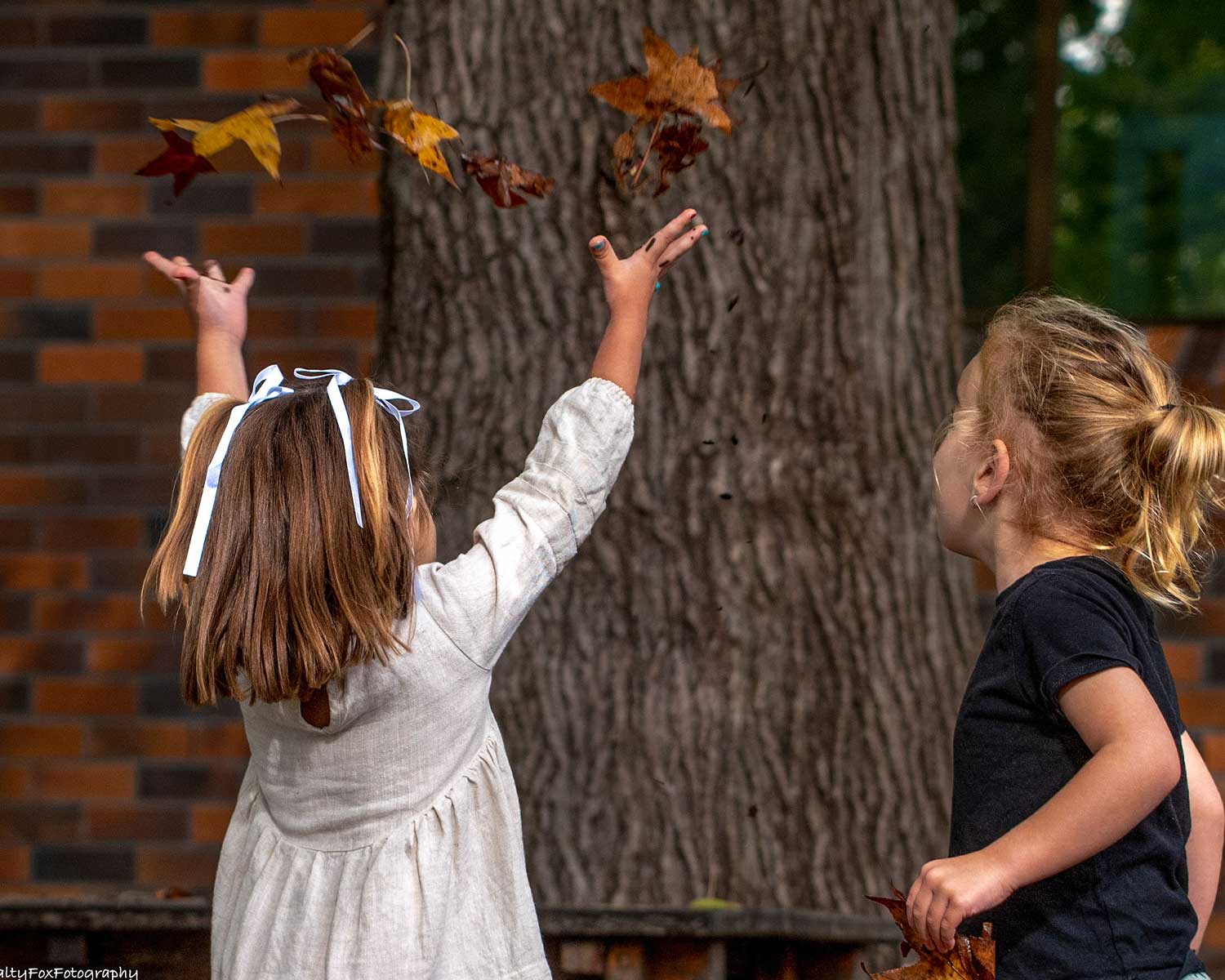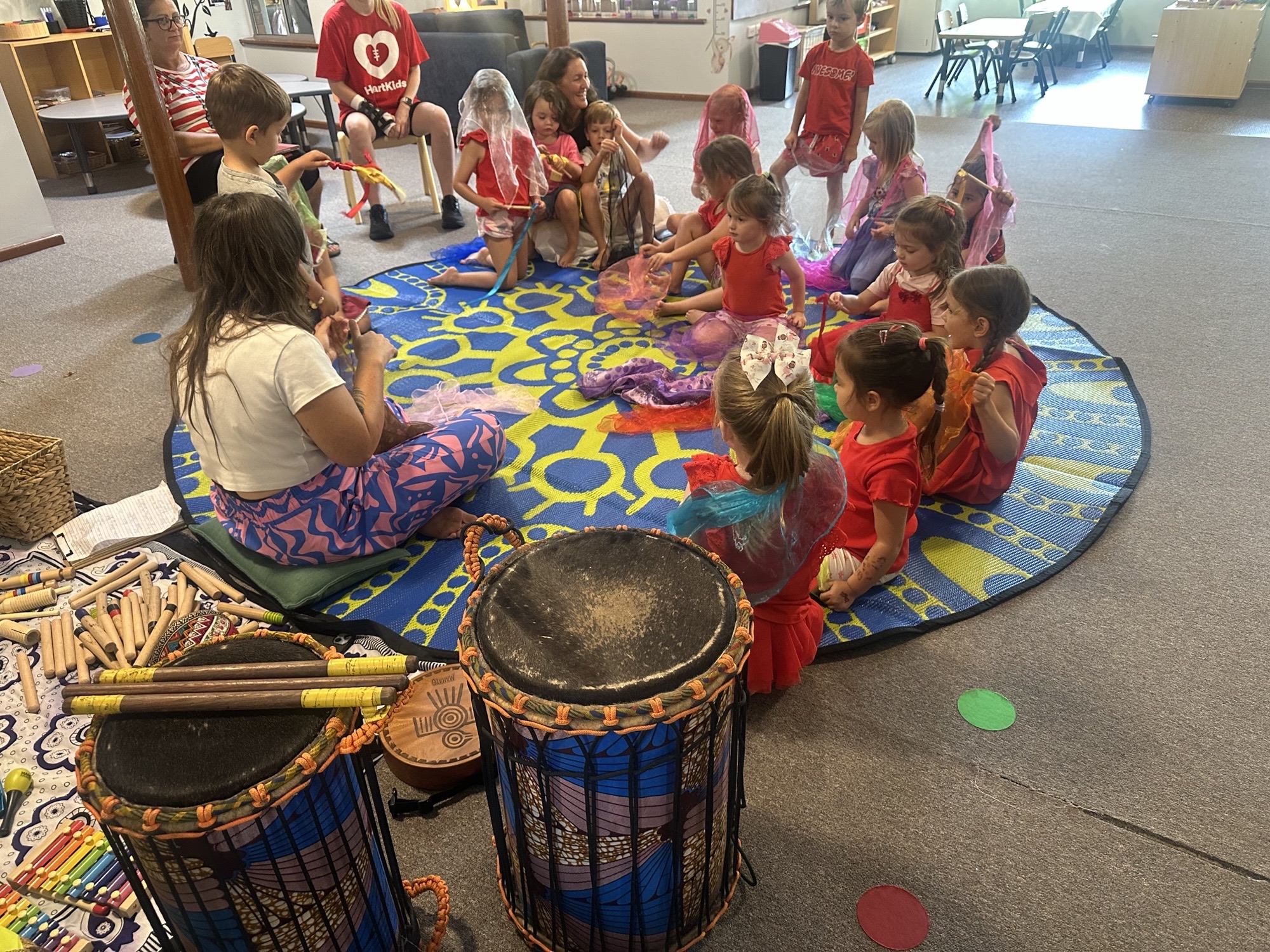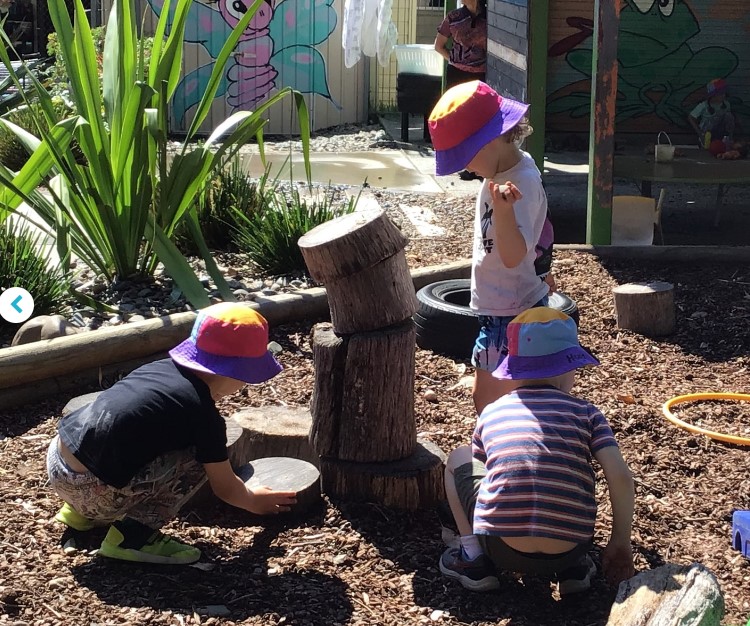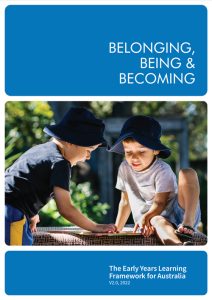Our Curriculum
At St Joseph’s Early Childhood Service (SJECS), our curriculum across all age groups is grounded in the belief that children learn best through play. Supported by extensive research, our approach embraces play-based learning as a powerful and meaningful way for children to explore, discover, and grow.
Our curriculum is:
-
Child-initiated and educator-framed – allowing educators to be responsive and flexible to each child’s developmental needs, interests, and learning journey.
-
Inclusive and equitable – built on the belief that all children have the right to play, to participate fully, and to experience success in a supportive environment.
-
Co-constructed and negotiated – where educators and children share a voice in the learning process, fostering collaboration, choice, and agency.
Your child’s ideas, interests, and strengths are central to shaping the daily program. Educators thoughtfully build on these foundations to create rich, engaging play experiences that support each child’s growth across all areas of development.
At St Joseph’s Early Childhood Service (SJECS), our curriculum is designed to support each child’s individual learning style while providing a rich and engaging environment where they can build friendships, experience a sense of belonging, and express themselves freely.
Educators observe and evaluate children’s participation in the program to meaningfully respond to their interests, conversations, and play. This allows us to scaffold learning, extend thinking, and build on each child’s strengths. Our educators draw on their professional knowledge to guide children’s learning and development in alignment with the Early Years Learning Framework (EYLF) outcomes.
An Emergent and Intentional Approach
Our curriculum is emergent—evolving in response to the children—and intentional, with teaching that is thoughtful, purposeful, and deliberate. Educators balance planned and spontaneous experiences to actively promote knowledge-building and meaningful learning.
Empowering Agency and Promoting Belonging
We aim to nurture children’s agency and support self-regulation, providing opportunities for children to make choices, lead their own learning, and interact meaningfully in diverse environments. Our learning environments reflect inclusive practices, celebrate diversity, and are informed by Aboriginal and Torres Strait Islander perspectives, as well as a shared commitment to a sustainable future.
Our curriculum is ever-evolving—shaped by daily life, discovery, and the unique experiences of the children. With endless possibilities for exploration and engagement, no two days are ever the same!
Working in Partnership with families:
At SJECS, we believe children thrive when families and educators work together in genuine partnership to support their learning and development. Our educators go beyond traditional notions of family involvement to build respectful, supportive relationships that honour each family’s role as the child’s first teacher.
We are committed to supporting families in their parenting journey and respecting their unique beliefs, values, and approaches to child-rearing. Truly knowing a child means also understanding their family, culture, and the broader community context in which they live.
When educators and families collaborate meaningfully, it offers valuable insights that create a more complete picture of the child. These authentic partnerships strengthen a child’s sense of identity and belonging, laying a strong foundation for enriched learning and positive outcomes.
Mealtimes:
At SJECS, families are responsible for supplying their child’s morning tea, lunch, and snacks each day. We encourage the inclusion of nutritious options, as the early years are a critical time for establishing healthy habits that support lifelong health and wellbeing.
We embrace progressive mealtimes, a practice increasingly adopted in early childhood education. This approach allows children to decide when they are ready to eat and what they would like to eat from the food provided. It fosters a sense of autonomy and helps children develop the confidence and skills to make informed choices about their own health and wellbeing.
The Rhythm of the day
Our daily rhythm embraces a balance of indoor and outdoor play, with a strong emphasis on providing extended periods of uninterrupted time. This allows children to deeply engage in their play and learning, fostering concentration, creativity, and meaningful exploration.
While we value consistency, our rhythm is intentionally flexible rather than rigid or fixed. Routines are responsive to the interests and needs of the children, as well as to environmental factors such as weather. This flexibility empowers educators to embrace spontaneous, child-led moments—often the richest opportunities for learning. When changes to the familiar routine do occur, these are communicated clearly to the children, supporting their sense of security and reducing potential anxiety.
Rest Times:
When it comes to rest times, our educators thoughtfully reflect on whether children have agency in their rest or whether it is directed by external expectations. We believe that children should have the right to make decisions about their own bodies and wellbeing. Those who do not require sleep are offered alternative quiet experiences that allow their bodies to rest in a calm and respectful environment.
